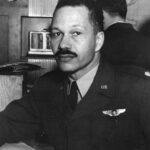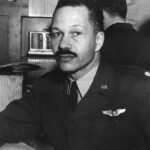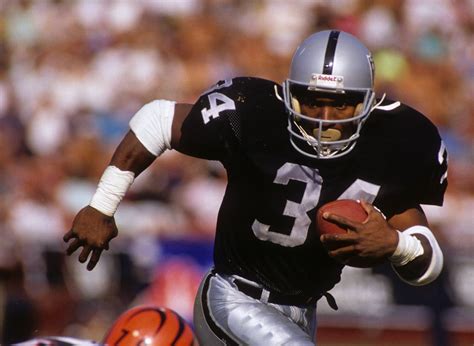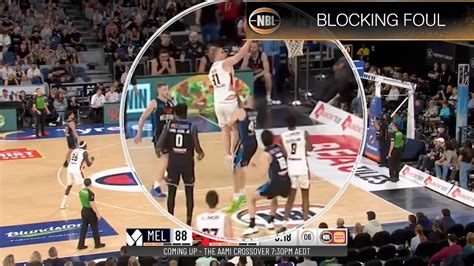
Bo Jackson’s legendary status was further cemented this week with anecdotes shared on the “McElroy and Cubelic in the Morning” radio show by former Auburn teammate James Jackson, recounting Jackson’s unparalleled athletic prowess and a particularly memorable incident involving a “silent but deadly” post-workout breath that allegedly cleared an entire weight room.
James Jackson’s retelling of Bo Jackson’s extraordinary strength and unique bodily function has captivated the sports world, adding another layer to the mythos surrounding the Auburn legend. Speaking on “McElroy and Cubelic in the Morning,” Jackson described witnessing firsthand the sheer power and almost mythical aura of Bo Jackson during their time together at Auburn University. While Jackson’s athletic achievements on the football field and baseball diamond are well-documented, this latest revelation provides a more intimate and humorous glimpse into the larger-than-life personality of one of sports’ most iconic figures.
The core of Jackson’s narrative revolves around the Auburn football team’s rigorous weightlifting sessions. Jackson recalled an instance when, after an intense workout, Bo Jackson unleashed a silent but potent exhalation that seemingly emptied the weight room. According to Jackson, “Brotha had muscles and breath. He didn’t say nothin’, but everybody in that weight room left. It was silent but deadly.” This anecdote, while humorous, underscores the immense physical exertion Jackson routinely put his body through, resulting in physiological effects that were, in Jackson’s words, “silent but deadly.”
Beyond the humor, the anecdote highlights the dedication and intensity that characterized Bo Jackson’s training regimen. It serves as a reminder of the relentless work ethic that fueled his success across multiple sports. While many athletes possess natural talent, Jackson’s story emphasizes the importance of hard work and unwavering commitment in achieving peak performance. The weight room incident, while seemingly trivial, becomes symbolic of Jackson’s overall approach to athletics – pushing his body to its limits and demanding excellence in every endeavor.
The anecdote also speaks to the respect and awe that Jackson commanded from his teammates. The fact that an entire weight room cleared out after Jackson’s exhalation suggests a level of deference and perhaps even fear inspired by his physical presence. Jackson was not only a gifted athlete but also a dominant force within the Auburn football program, a figure whose actions and presence held considerable sway over his peers.
The “silent but deadly” breath incident is just one of many stories that contribute to the Bo Jackson legend. From his remarkable performances on the field to his numerous feats of strength and athleticism, Jackson has become a symbol of athletic excellence and superhuman ability. These anecdotes, passed down through generations of sports fans, have created a mythical figure whose accomplishments transcend the boundaries of ordinary human achievement.
Moreover, James Jackson’s account has sparked renewed interest in Bo Jackson’s overall athletic career. While many are familiar with his exploits in both professional football and baseball, fewer may be aware of the extent of his accomplishments at Auburn. Jackson was a Heisman Trophy winner in 1985, a two-time All-American, and a three-time All-SEC selection. He also excelled in track and field, demonstrating his versatility and exceptional athleticism across multiple disciplines.
In professional football, Jackson defied conventional wisdom by playing both football and baseball simultaneously. He was a star running back for the Los Angeles Raiders and an outfielder for the Kansas City Royals, a feat that few athletes have ever attempted, let alone achieved with such success. His career was tragically cut short by a hip injury sustained during a football game, but his impact on both sports remains indelible.
Jackson’s story serves as an inspiration to athletes of all ages and abilities. It is a testament to the power of hard work, dedication, and unwavering belief in one’s own potential. While few will ever reach the same level of athletic achievement as Jackson, his example provides a blueprint for success and a reminder that anything is possible with sufficient effort and determination.
The renewed interest in Jackson has also led to discussions about his place in sports history. Some argue that he is one of the greatest athletes of all time, while others contend that his career was too short to warrant such lofty comparisons. Regardless of one’s opinion, there is no denying the profound impact that Jackson had on the sports world. He was a true original, a one-of-a-kind athlete who captivated audiences with his exceptional talent and larger-than-life personality.
The “silent but deadly” breath anecdote, while humorous, is a reminder of the human side of Jackson. It reveals a glimpse of his personality beyond the field of play and adds another layer to the complex and multifaceted figure that he has become. It is a reminder that even the most extraordinary athletes are still human beings with their own unique quirks and characteristics.
In conclusion, James Jackson’s recounting of Bo Jackson’s “silent but deadly” breath has served as a reminder of the enduring legend of one of sports’ most iconic figures. It is a story that captures the imagination and underscores the extraordinary talent, dedication, and larger-than-life personality of Bo Jackson. It is a story that will undoubtedly be passed down through generations of sports fans, ensuring that the legend of Bo Jackson continues to live on.
Expanded Context and Analysis
The story of Jackson’s breath clearing the weight room transcends a simple humorous anecdote; it delves into the almost mythical status he attained during his athletic career. This incident, amplified by Jackson’s powerful physique and the intensity of his training regimen, serves as a testament to his dominance and the profound respect (and perhaps slight intimidation) he inspired in his peers.
Analyzing Jackson’s story, it’s essential to consider the cultural and historical context. The 1980s and early 1990s were periods of intense athletic competition, where strength and power were highly valued. Jackson epitomized this era with his incredible blend of speed, agility, and raw power. His ability to excel in both football and baseball defied the norms of specialization and solidified his position as a unique athletic phenomenon.
Jackson’s physical prowess extended beyond just playing two professional sports simultaneously. He was known for his incredible feats of strength, such as breaking bats over his knee and running up walls during football games. These seemingly superhuman abilities contributed to the creation of a myth surrounding him, making him more than just an athlete; he became a symbol of extraordinary human potential.
The “silent but deadly” breath incident, therefore, is not merely a funny story but rather a microcosm of Jackson’s overall impact. It represents his ability to command attention and respect, both on and off the field. It underscores the fact that he was not just a gifted athlete but also a dominant presence, someone who inspired both awe and a degree of apprehension.
Furthermore, the story highlights the unique culture of collegiate athletics, particularly in a powerhouse program like Auburn. The weight room is often seen as a crucible where athletes forge their physical and mental toughness. It is a place of intense competition, camaraderie, and sometimes, even intimidation. Jackson’s breath incident, in this context, becomes a metaphor for his ability to assert his dominance within this environment, solidifying his position as a leader and a force to be reckoned with.
The longevity of Jackson’s legend also stems from the relatively short duration of his professional career. His hip injury cut short what could have been an even more remarkable run, leaving fans to speculate about what he might have accomplished had he remained healthy. This sense of unfulfilled potential has only added to the mystique surrounding him, fueling the ongoing fascination with his accomplishments and the “what ifs” that continue to linger.
Jackson’s influence extends beyond the realm of sports. He became a cultural icon, representing the possibilities of multi-sport athleticism and the importance of pushing one’s physical limits. He challenged conventional wisdom and inspired a generation of athletes to pursue their dreams, regardless of the obstacles they faced. His story serves as a reminder that true greatness is not just about talent but also about hard work, dedication, and an unwavering belief in oneself.
James Jackson’s anecdote also underscores the power of storytelling in perpetuating legends. Oral histories and personal accounts play a crucial role in shaping our understanding of historical figures and events. Jackson’s retelling of the breath incident provides a more intimate and personal perspective on Jackson, humanizing him while simultaneously reinforcing his extraordinary status.
In conclusion, the story of Jackson’s “silent but deadly” breath is more than just a funny anecdote; it is a symbol of his extraordinary athletic abilities, his dominant presence, and his enduring legacy. It is a reminder of the power of hard work, dedication, and the human potential to achieve greatness. It is a story that will continue to be told and retold, ensuring that the legend of Jackson lives on for generations to come. The confluence of his immense power, the intensity of the Auburn weight room, and the sheer audacity of the event, creates a perfect storm of legend-building material. It’s the kind of story that transcends mere athletic achievement and enters the realm of folklore. The imagery of an entire weight room emptying due to the sheer potency of Jackson’s post-workout exhalation is inherently captivating and contributes significantly to his enduring legacy.
The anecdote also speaks to the culture of masculinity prevalent in sports environments. The weight room is often a hyper-masculine space where displays of strength and dominance are commonplace. Jackson’s breath incident, in this context, can be interpreted as a subtle assertion of dominance, a non-verbal communication of his superior physical prowess. The fact that his teammates responded by leaving the room suggests a recognition of his alpha status and a deference to his physical superiority. This element of masculine dominance further contributes to the overall narrative of Jackson as a larger-than-life figure.
Finally, the story’s success also relies on its inherent humor. The image of a silent but deadly exhalation clearing an entire weight room is inherently funny, and this humor makes the story more memorable and shareable. It’s the kind of anecdote that can be easily retold and embellished, further contributing to the growth of the legend. The combination of humor, awe, and a touch of the absurd makes the story particularly appealing and ensures its continued circulation within the sports community.
Bo Jackson: A Deeper Dive into His Multi-Sport Career and Enduring Legacy
To fully appreciate the “Bo Knows Breath” anecdote, it is crucial to delve into the multifaceted career and the enduring legacy of Vincent Edward “Jackson.” He wasn’t just a phenomenal athlete; he was a cultural phenomenon who challenged the conventional wisdom of sports specialization and captured the imagination of a nation.
His career at Auburn University laid the foundation for his future success. As mentioned previously, he won the Heisman Trophy in 1985, solidifying his status as one of the nation’s top college football players. However, his athletic prowess extended beyond the gridiron. He was also a standout track and field athlete, demonstrating exceptional speed and power in events like the 100-meter dash and the long jump. This multi-sport background provided him with a unique combination of skills and athleticism that would serve him well in his professional career.
Jackson’s decision to pursue both professional football and baseball was unprecedented at the time. Many experts questioned whether it was even possible to excel in both sports simultaneously. However, Jackson defied the doubters, signing with the Kansas City Royals in 1986 and the Los Angeles Raiders in 1987.
In baseball, Jackson quickly established himself as a power hitter with exceptional speed. He was known for his dramatic home runs, his stolen bases, and his ability to make spectacular defensive plays. He was named to the All-Star team in 1989 and was considered one of the most exciting players in the game.
In football, Jackson was a bruising running back with explosive speed and incredible power. He was known for his highlight-reel runs, his ability to break tackles, and his unwavering determination. He quickly became a fan favorite in Los Angeles and was considered one of the league’s most promising young players.
The simultaneous pursuit of two professional sports took a toll on Jackson’s body. He was constantly traveling between baseball and football games, enduring grueling training schedules, and facing a high risk of injury. However, he persevered, driven by his passion for both sports and his unwavering desire to succeed.
Tragically, Jackson’s career was cut short by a hip injury sustained during a football game in 1991. The injury was severe, and doctors initially told him that he would never be able to play professional sports again. However, Jackson refused to give up. He underwent extensive rehabilitation and made a remarkable comeback to baseball in 1993.
While he was never quite the same player after his injury, his comeback was a testament to his determination and his unwavering spirit. He played two more seasons in baseball before retiring in 1995.
Despite the relatively short duration of his professional career, Jackson left an indelible mark on the sports world. He demonstrated that it was possible to excel in multiple sports and inspired a generation of athletes to pursue their dreams, regardless of the obstacles they faced.
His “Bo Knows” advertising campaign with Nike further cemented his status as a cultural icon. The campaign featured Jackson participating in a wide range of sports and activities, accompanied by the tagline “Bo Knows.” The campaign was hugely successful and helped to popularize Jackson’s image as a multi-talented athlete who could do anything.
Jackson’s legacy extends beyond his athletic achievements. He is also known for his philanthropy and his commitment to giving back to the community. He has been involved in numerous charitable organizations and has worked to support underprivileged youth.
In conclusion, Jackson was more than just an athlete; he was a cultural icon, a symbol of human potential, and a role model for aspiring athletes around the world. His “Bo Knows Breath” anecdote is just one small piece of the puzzle that makes up his extraordinary story. It is a reminder of his unique abilities, his dominant presence, and his enduring legacy. His story continues to inspire and captivate, ensuring that the legend of Bo Jackson lives on for generations to come.
Frequently Asked Questions (FAQ) about Bo Jackson and the “Bo Knows Breath” Anecdote:
1. What is the “Bo Knows Breath” anecdote about?
The “Bo Knows Breath” anecdote, recounted by former Auburn teammate James Jackson, describes an incident where Bo Jackson, after an intense weightlifting session, emitted a silent but incredibly potent exhalation that allegedly caused everyone in the weight room to leave due to its overwhelming effect.
2. Is the “Bo Knows Breath” story verified? Is it true?
The story is anecdotal, coming directly from James Jackson. While there’s no independent verification in the traditional sense, the story’s plausibility is bolstered by Jackson’s well-known physical prowess and the rigorous nature of collegiate athletic training. The story is more about the legend and the perception of Jackson’s physical dominance than a verifiable fact.
3. What other sports did Jackson play besides football and baseball?
While primarily known for football and baseball, Jackson was also a gifted track and field athlete at Auburn University. He competed in events like the 100-meter dash and the long jump, showcasing his exceptional speed and athleticism across multiple disciplines.
4. How did Jackson’s hip injury affect his career?
Jackson sustained a career-altering hip injury during a football game in 1991 while playing for the Los Angeles Raiders. The injury was so severe that doctors initially told him he would never play professional sports again. While he did make a remarkable comeback to baseball, he was never quite the same player he was before the injury, ultimately shortening his professional career.
5. What is Jackson’s lasting legacy in sports?
Jackson’s lasting legacy is that of a multi-sport phenomenon who defied conventional wisdom and excelled in both professional football and baseball. He is remembered for his exceptional athleticism, his highlight-reel plays, and his “Bo Knows” advertising campaign. He is considered a cultural icon who inspired a generation of athletes to pursue their dreams and challenge the limits of human potential. The story of his “silent but deadly” breath further adds to his mythical status and ensures that his legend will continue to live on.









